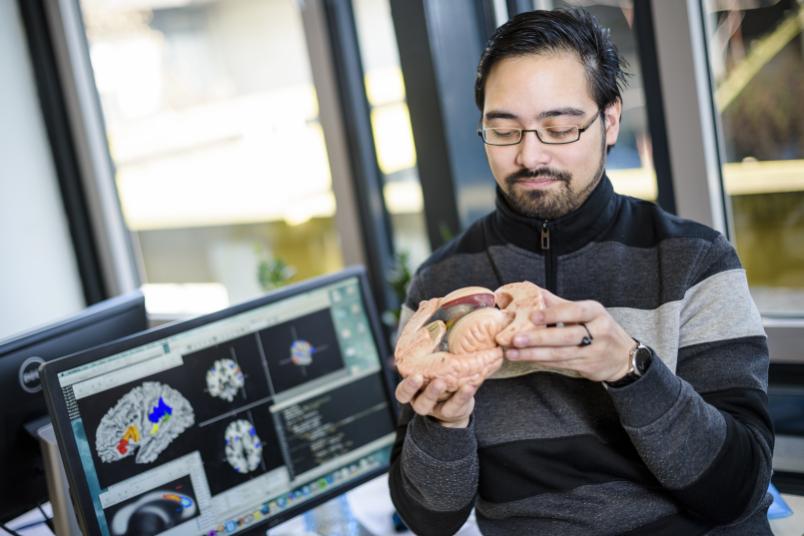
Interview
Science and mystery
In his PhD thesis, Patrick Friedrich investigates the causes of differences in the brain activity of different individuals. In the process, he pushes the boundaries of scientific methods.
A researcher who analyses the brain activity of humans with magnetic resonance imaging will never see two identical activity patterns. Every so often, he identifies differences between individuals. This is precisely what PhD student Patrick Friedrich is interested in – quite a challenge from the methodological point of view.
Mr Friedrich, when you find a cause for the differences in the brain activity of different people, are you able to explain the entire variance between those individuals?
No, we can explain only approximately 30 per cent of the variance in a specific assignment. That’s not much. But it’s still better than to be groping entirely in the dark. We are facing an obstacle that typically occurs in neuroscience. Due to the complexity of the brain, it’s impossible to analyse all influencing factors at the same time. We are working with models that are probably not perfect and that are fed by methods that probably are not perfect either. But I don’t like to call that a problem; it is a pleasant mystery.
You appear to enjoy this form of research.
I like it when, at the end of an abstract analysis, I have to draw conclusions of existing knowledge and consequently real life. Researching in the field of fundamental science, I sometimes get the impression that I entrench myself in the lab, with my thoughts revolving only around numbers and abstract functions. In such moments, it’s a good thing to be forced to take a step back into real life.

The benefit of fundamental science for real-life applications often doesn’t manifest itself at first glance.
That means applicability is important to you
I like all types of research, also abstract ones. In fundamental science, it’s often difficult to justify one’s studies, because the benefits for everyday life are not immediately evident. For most people, research should be useful and explain things that humans need in everyday life. But the benefit of fundamental science for real-life applications often doesn’t manifest itself at first glance. Still, fundamental science generates knowledge that might one day play a great role in resolving new questions, even if it doesn’t appear so today.
You may say that a researcher in this field has the chance to find jigsaw pieces. You don’t know if those pieces match a picture now or if the matching picture has to be created first.